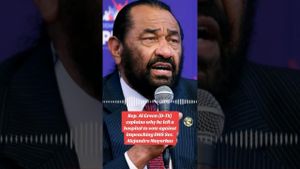President Luiz Inácio Lula da Silva has made it abundantly clear: he has no intention of acquiring the Companhia Energética de Minas Gerais (Cemig) for the purposes of privatization. During interviews on February 5th with various mining radio stations including Itatiaia, Mundo Melhor, and Band News FM BH, Lula affirmed the state's control over Cemig, stating it is up to the government of Minas Gerais to decide the company's future.
This declaration surfaced amid discussions on the state’s significant debt and the solutions proposed for alleviating this financial burden. Lula emphasized, "If Cemig is important for the people of Minas Gerais, do you think I will take on the responsibility of acquiring the company to privatize it? If it’s to privatize, let Minas Gerais sell it and pay the government. But I’m not going to do this." His comments highlight his administration's focus on preserving the importance of Cemig for local citizens as part of the broader political and economic narrative.
Lula's comments occurred as Minas Gerais grapples with overwhelming fiscal challenges, seeking various strategies to manage its debt. The interest to potentially privatize Cemig, as suggested by Governor Romeu Zema, has gained traction among state officials as they explore options to bolster the state's finances and address mounting liabilities.
"I vetoed everything the Attorney General said was unconstitutional. I made the veto knowing they can overturn it. The National Congress has the sovereignty to override the veto, and I have the sovereignty to appeal. It's just a normal process," Lula explained, referring to the legal intricacies surrounding state deals and the proposed federalization strategy.
If federalized, Cemig could play a role in settling part of Minas Gerais' debt with the Union, helping to ease financial pressures. This strategy falls under the recently inaugurated Programa de Pleno Pagamento da Dívida dos Estados (Propag), which aims to facilitate debt relief for states burdened by financial obligations to the national government.
While Lula is firm against privatizing Cemig, he has left the possibility open for assessing other state-owned enterprises for privatization, though these decisions will be considered on a case-by-case basis. He stated, "There are other companies we can privatize. But we want to analyze each company case by case." This nuance reflects the complexity of Brazil's financial and political environment, particularly as Lula's administration navigates the balance between state control and fiscal responsibility.
The notion of privatizing Cemig is not new; it has been historically contentious, stirring up strong reactions from locals who view the company as integral to the state's infrastructure and economy. Lula referenced the past resistance against privatization attempts, particularly during the administration of former President Fernando Henrique Cardoso, during which tensions rose over proposals to privatize state assets.
Reflecting on this episode, Lula stated, "You think I forgot when Itamar Franco deployed Minas Gerais police to confront the army of Fernando Henrique Cardoso when he proposed to privatize Cemig?" This historical recollection serves to underline the significance of the state's energy company to public sentiment and the political legacy surrounding its management.
Lula’s clear stance not to engage in privatization serves as reassurance to his base and the residents of Minas Gerais, who largely view Cemig as key to regional development and autonomy. The emphasis on state decision-making reinforces Lula's belief in local governance and the right of Minas Gerais to manage its assets without federal interference.
While local leaders and state representatives contemplate the future of Cemig, discussions of privatization highlight broader fiscal strategies under review, particularly as Brazil's economy continues to evolve. Analysts will be watching closely, as Lula's stance on other potential privatizations could have substantial ramifications for markets and investor confidence.
The complexity of fiscal responsibility versus public ownership encapsulates the challenges Brazilian authorities face, particularly amid rising debts and demands for economic reform. With Cemig firmly out of the privatization conversation from the federal perspective, the debate around its future will remain squarely centered within the governance and economic strategy of Minas Gerais.
Lula's declarations not only affect the immediate concerns of Cemig but also signal his administration's approach to working collaboratively with states to manage financial challenges effectively. It will be interesting to see how this dialectic evolves, especially as pressures around state debts intensify and fiscal responsibility remains at the forefront of political agendas.



